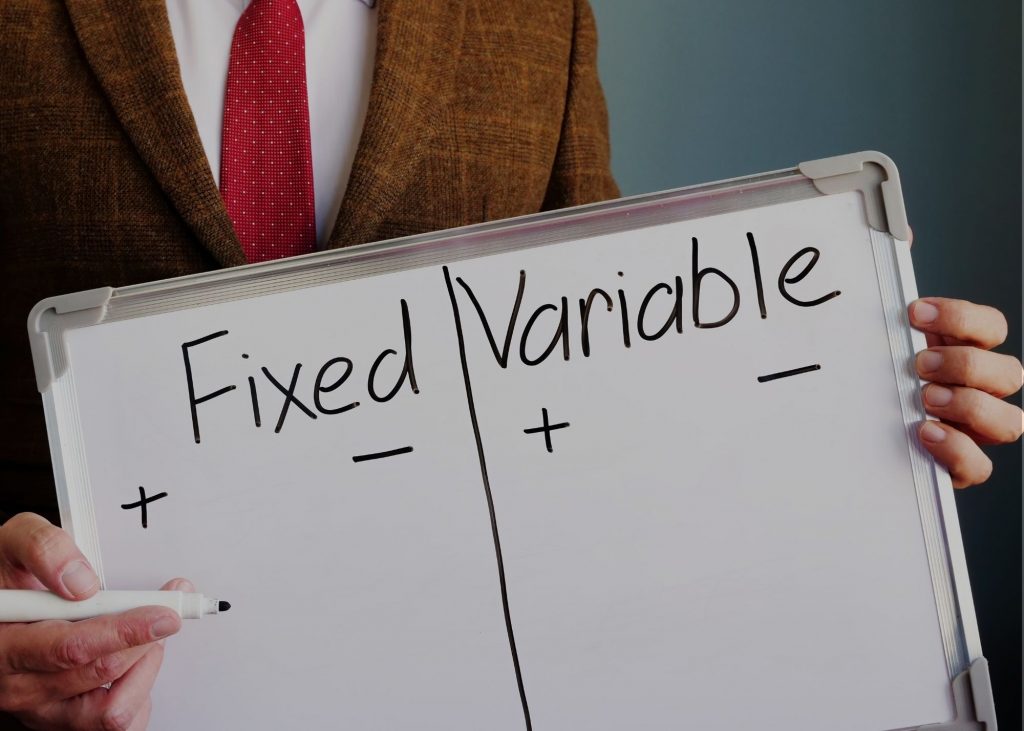Variable or fixed?
It’s a big question that many people consider when taking out a home loan.
So what is the difference?
A variable interest rate home loan means that the loan can change. This means, your repayments may increase if rates go up however on the plus side they may decrease if rates go down.
A fixed interest rate home loan means that the interest rate is locked in for a certain amount of time, it might be 1 year, 2 years or 5 years. So, your loan repayments remain the same over the fixed rate term.
Do you know which you would prefer to go with? Let’s dive into the pros and cons to help give you a better picture of what suits your situation.
Pros
Variable
- The average variable interest rate is usually lower than a fixed rate home loan.
- Often allows unlimited additional repayments.
- Home loan repayments will fall when the interest rates fall.
Fixed
- Repayments won’t rise if the official interest rate rises.
- Select the fixed term that suits you.
- Allows more precise budgeting as you know how much your repayments will be for the fixed period.
Cons
Variable
- It can be risky if interest rates do rise if you’ve borrowed near your repayment capacity.
- Home loans repayments will rise when interest rates rise.
- Increasing interest rates mean your home loan repayments could be more than a fixed interest home loan over a certain period of time.
Fixed
- Exit fees will apply if you want to change or exit the loan early.
- Less flexibility.
- You could end up paying more over the term if you had selected a variable home loan, even in a rising interest rate market.
Give MC Mortgage Solutions a call to chat through these options. We’re here to help.




